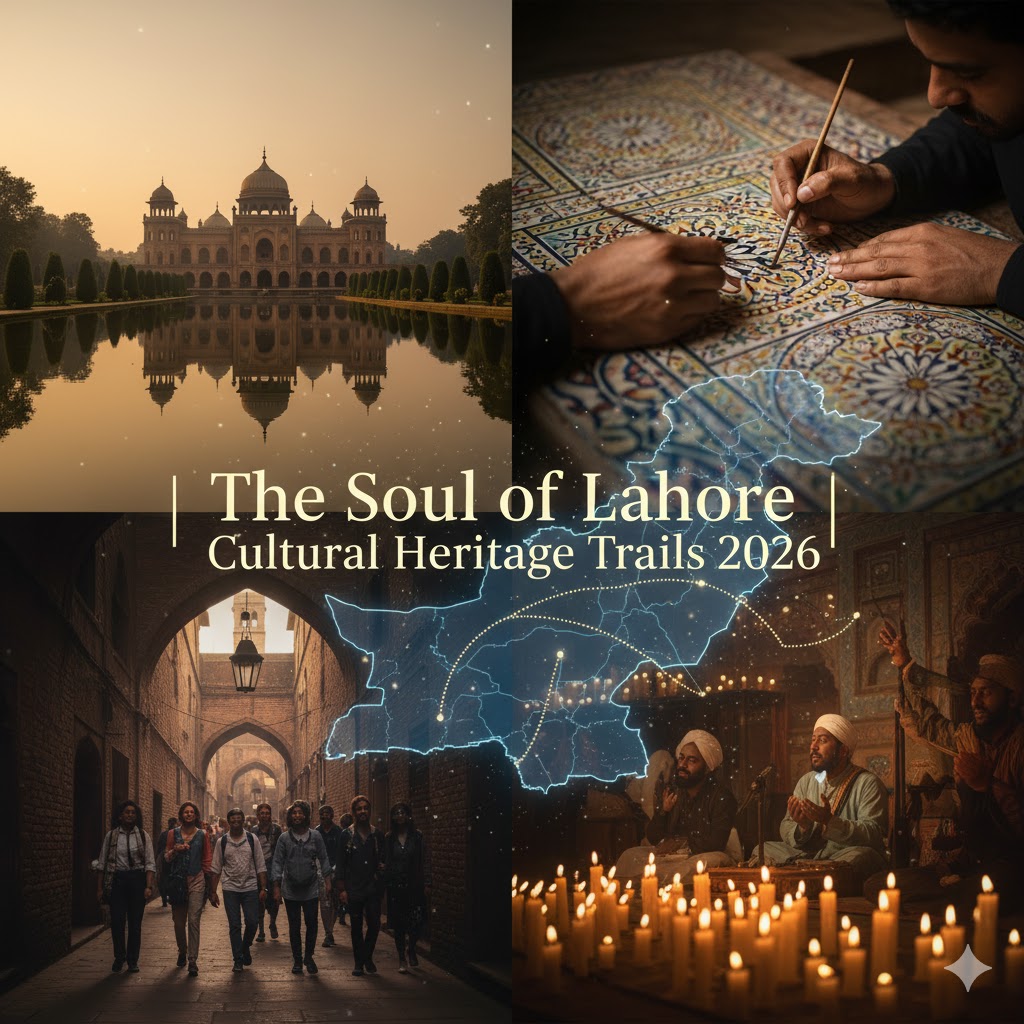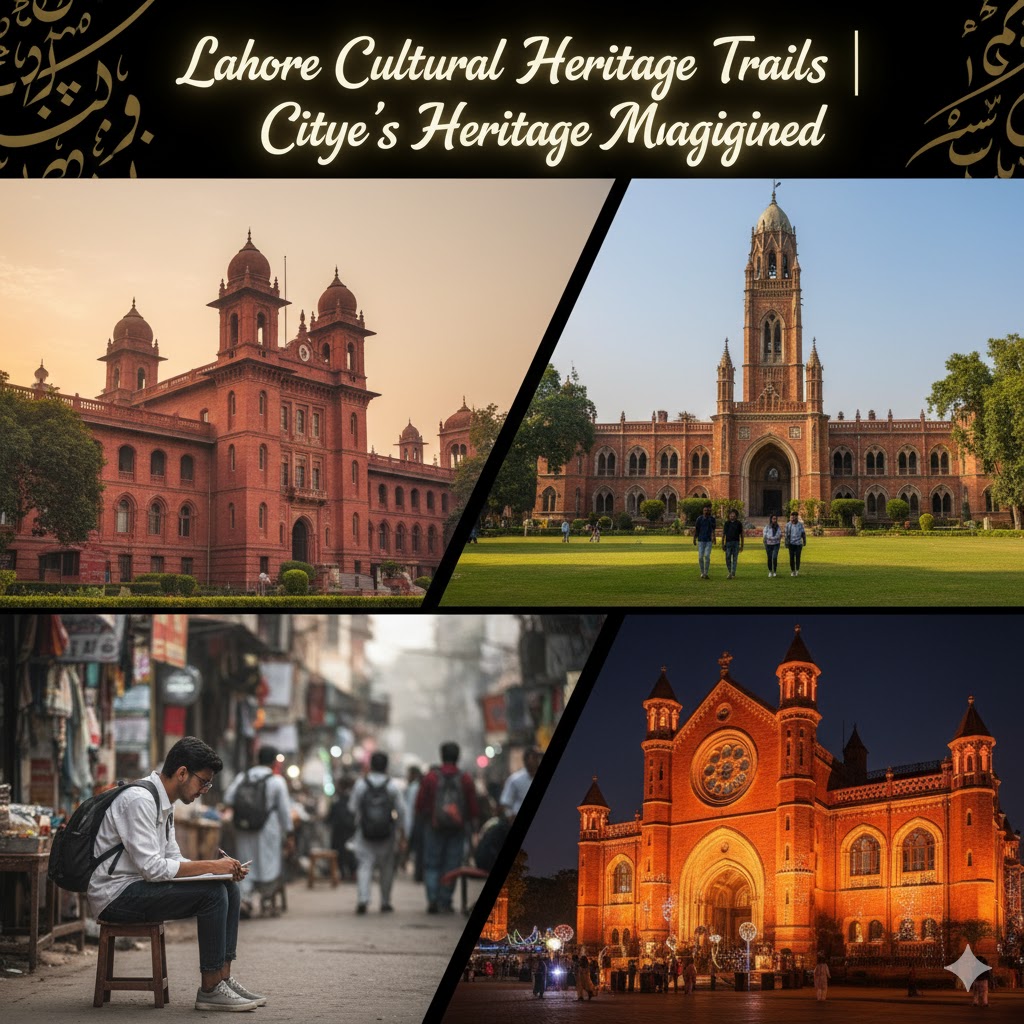Introduction — The Living Canvas of Lahore
Lahore Cultural Heritage Trails embody the soul of Pakistan — a city where every brick whispers poetry, every dome echoes history, and every street celebrates life. Known as the “City of Gardens and Stories,” Lahore’s cultural map in 2026 offers a reimagined experience that blends preservation, technology, and immersive travel.
From the Mughal-era Walled City to colonial boulevards and vibrant art scenes, Lahore stands as a timeless bridge between tradition and modern identity.
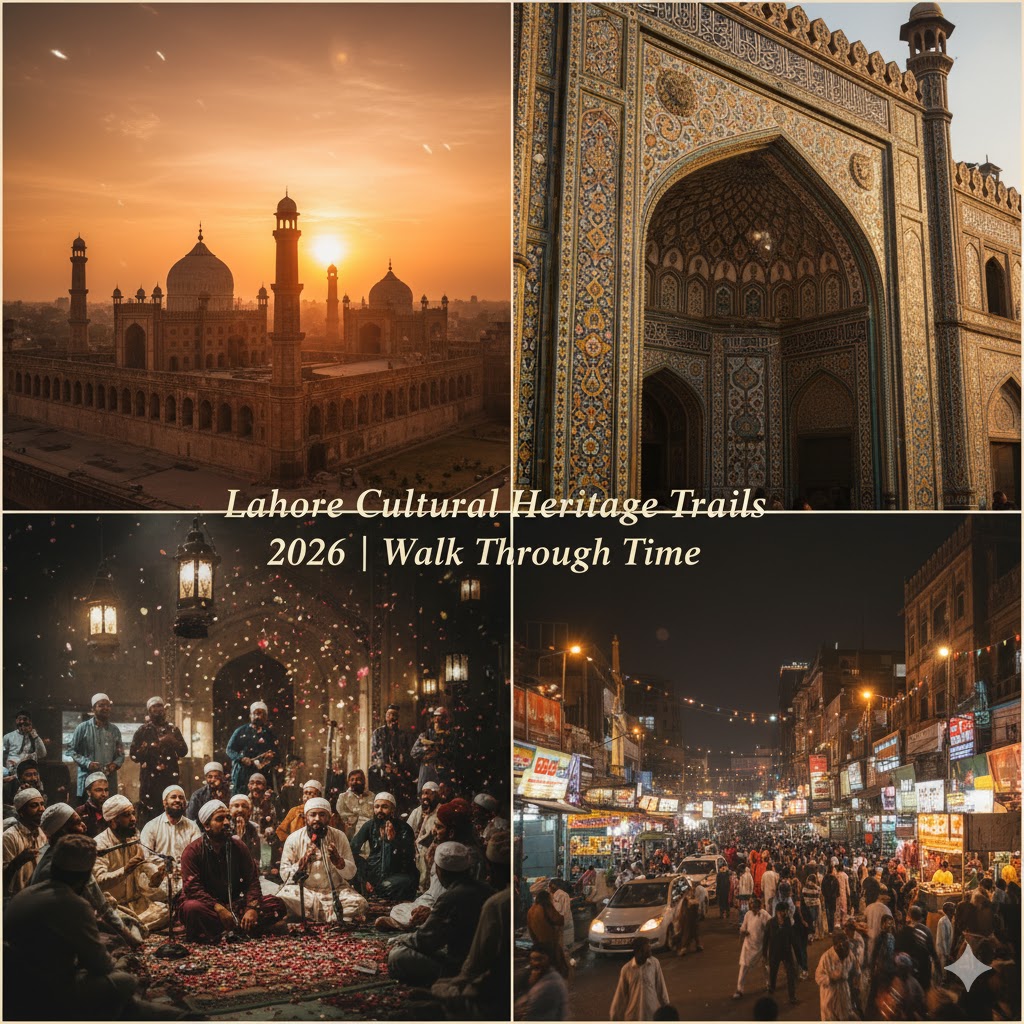
1. Lahore Fort & Shahi Qila Trail — Echoes of the Mughal Empire
The Lahore Fort (Shahi Qila) is a UNESCO World Heritage Site that anchors the city’s Mughal heart. Built and expanded by emperors Akbar, Jahangir, and Shah Jahan, the fort embodies Lahore’s royal artistry through marble palaces, mosaics, and frescoes.
- Key Highlights: Sheesh Mahal (Palace of Mirrors), Naulakha Pavilion, Alamgiri Gate, and Moti Masjid.
- Visitor Tip: Attend the WCLA’s Light & Sound Show in the evenings for an immersive storytelling experience.
- Entry Fee: PKR 500 (locals), PKR 1,000 (foreigners).
- Managed by: Walled City of Lahore Authority (WCLA)
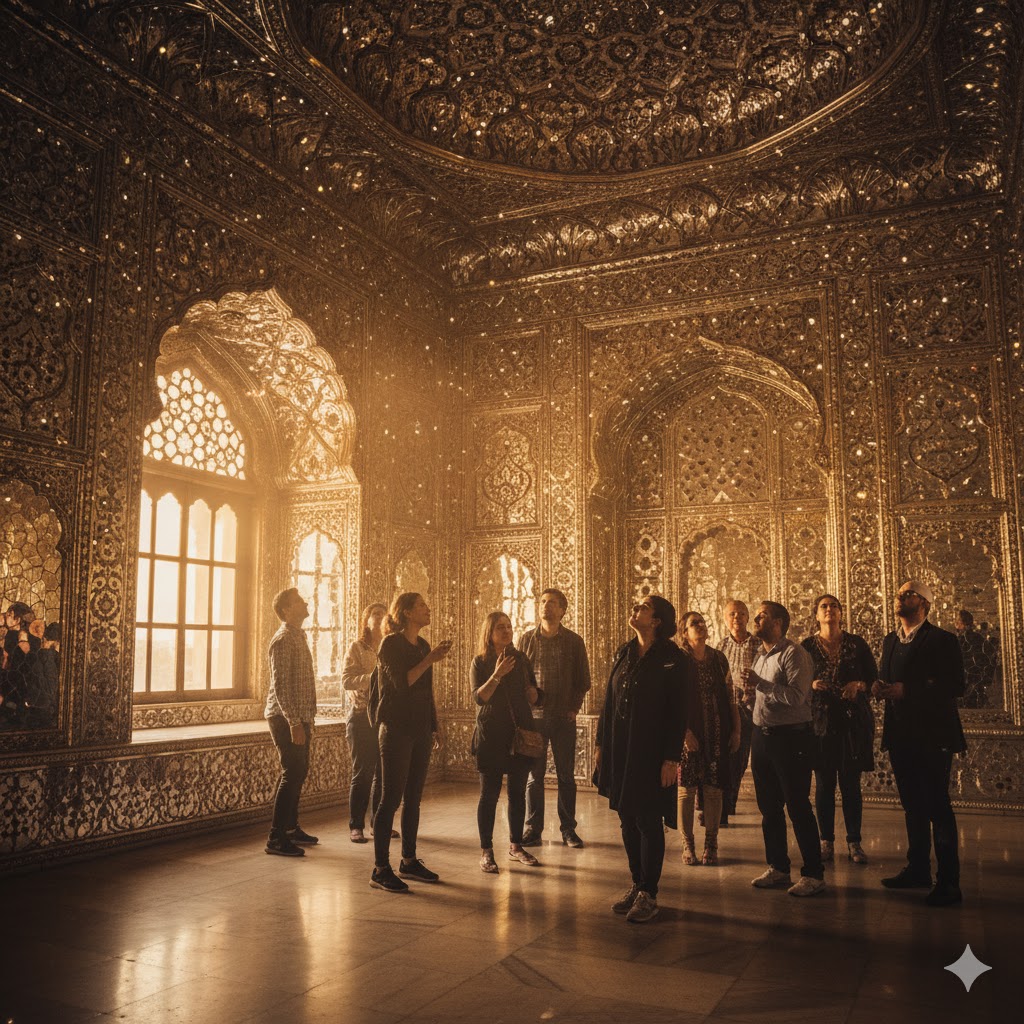
2. The Sufi Heritage Trail — Shrines, Spirituality & Soul
Lahore’s spiritual pulse beats strongest along its Sufi Heritage Trail, a path connecting the city’s most revered shrines.
Visit Data Darbar, Mian Mir Shrine, and Bibi Pak Daman to experience centuries-old devotional music, Qawwali nights, and community rituals that continue to define Lahore’s spiritual identity.
Local tip: Friday evenings are perfect for witnessing live Qawwali sessions surrounded by flower vendors and lantern-lit alleys.
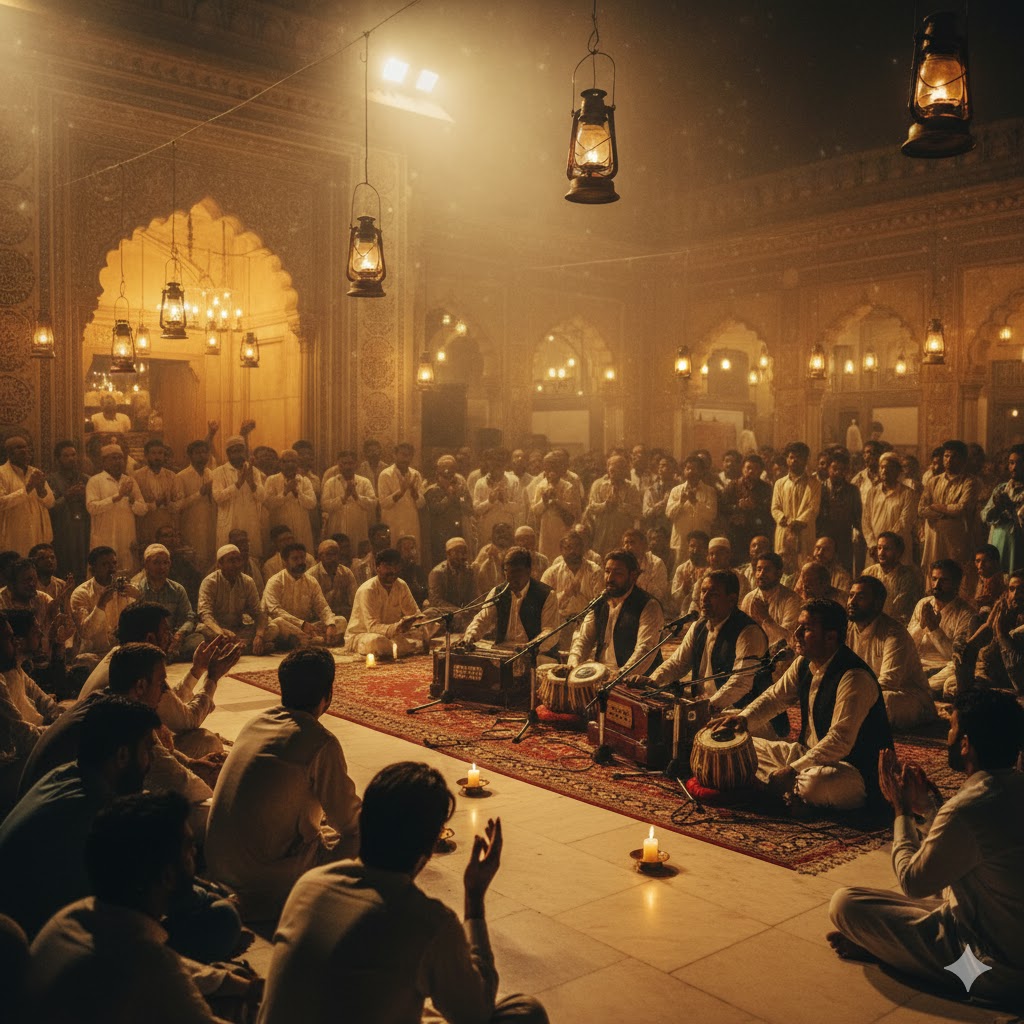
🏛️ 3. Colonial Charm Trail — Lahore’s British-Era Heritage
When the British took over Lahore in the mid-19th century, they redesigned the city with a neo-classical aesthetic while preserving Mughal sensibilities.
Explore landmarks like:
- Lahore Museum (immortalized by Rudyard Kipling’s Kim)
- Government College University (GCU) — a Gothic Revival masterpiece
- Punjab University’s Old Campus — academic heritage since 1882
Walk down The Mall Road, visit Lawrence Gardens (Bagh-e-Jinnah), and end your trail with high tea at Faletti’s Hotel, where partition-era diplomats once stayed.
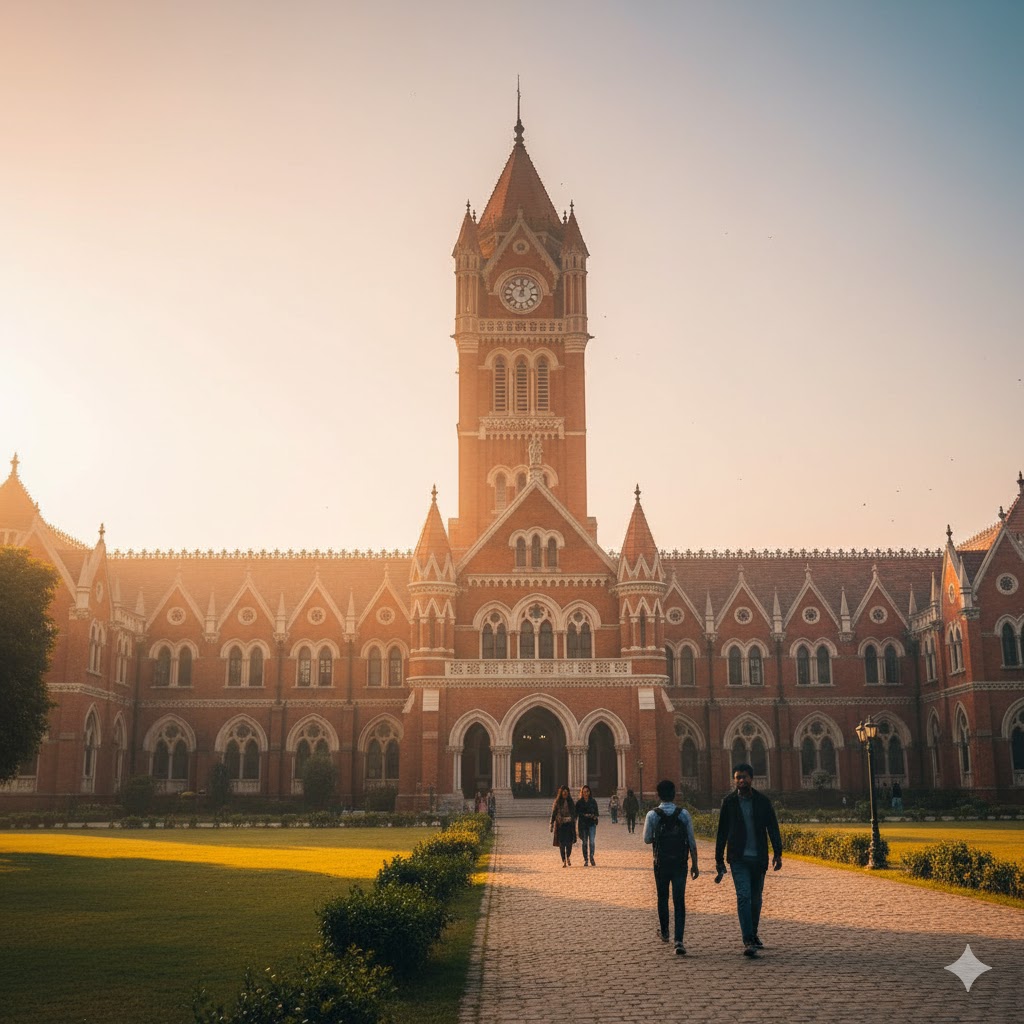
🎨 4. Art & Literary Trail — Lahore’s Creative Renaissance
Lahore’s modern identity thrives in its art galleries, literature festivals, and music scenes.
Start from the National College of Arts (NCA), continue to Alhamra Arts Council, and don’t miss Lahore Literary Festival (LLF) held annually at Alhamra or Avari.
Local Tip: Visit Café Zouk and Café Aylanto for live performances by young musicians and artists showcasing Lahore’s urban creativity.
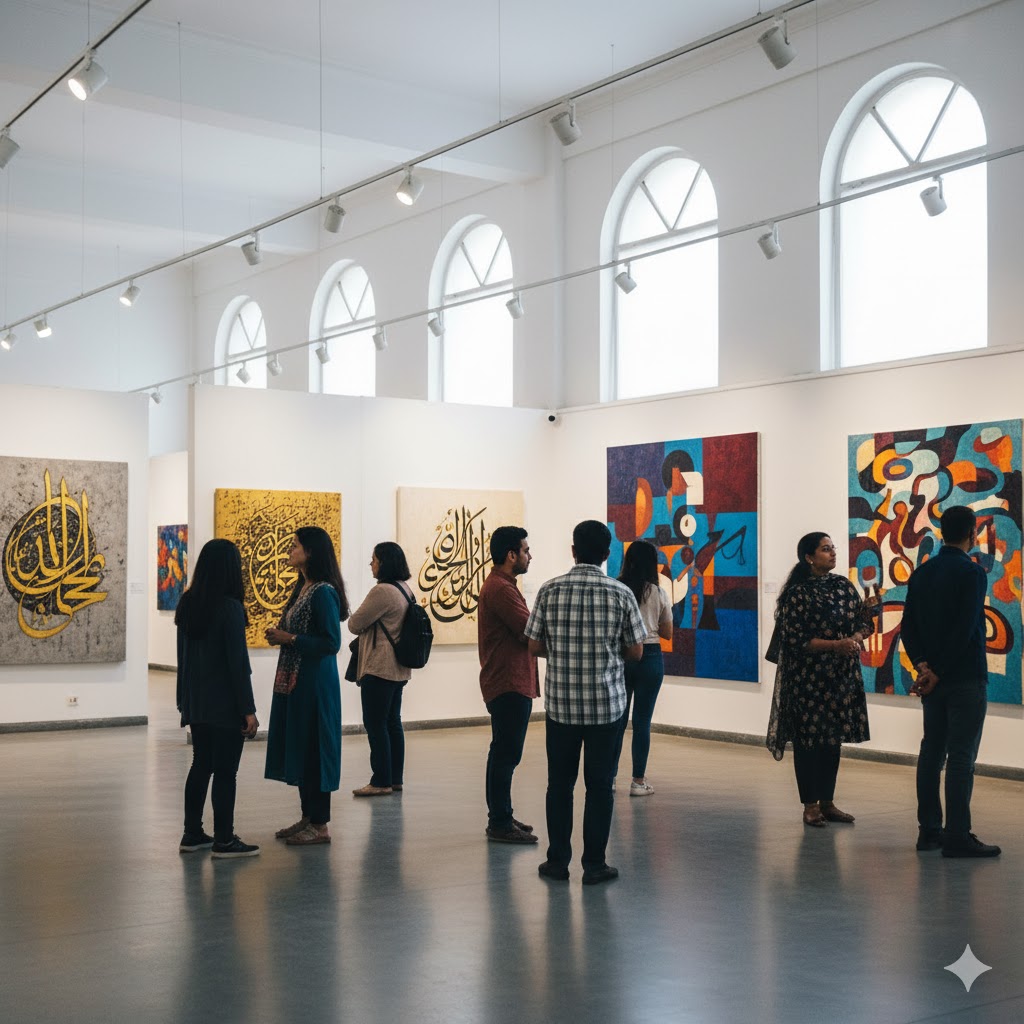
🏚️ 5. Old Lahore Heritage Walk — Stories in Every Stone
No visit is complete without walking through the Walled City of Lahore, entering via Delhi Gate into a world where every turn reveals an era.
Highlights include:
- Shahi Hammam — 17th-century Mughal bathhouse restored by Aga Khan Trust
- Masjid Wazir Khan — a masterpiece of Persian tilework
- Havelis of Chowk Wazir Khan — private mansions adorned with wooden balconies
End your walk at Food Street Fort Road, with the Badshahi Mosque glowing in the background while you savor Lahori BBQ.
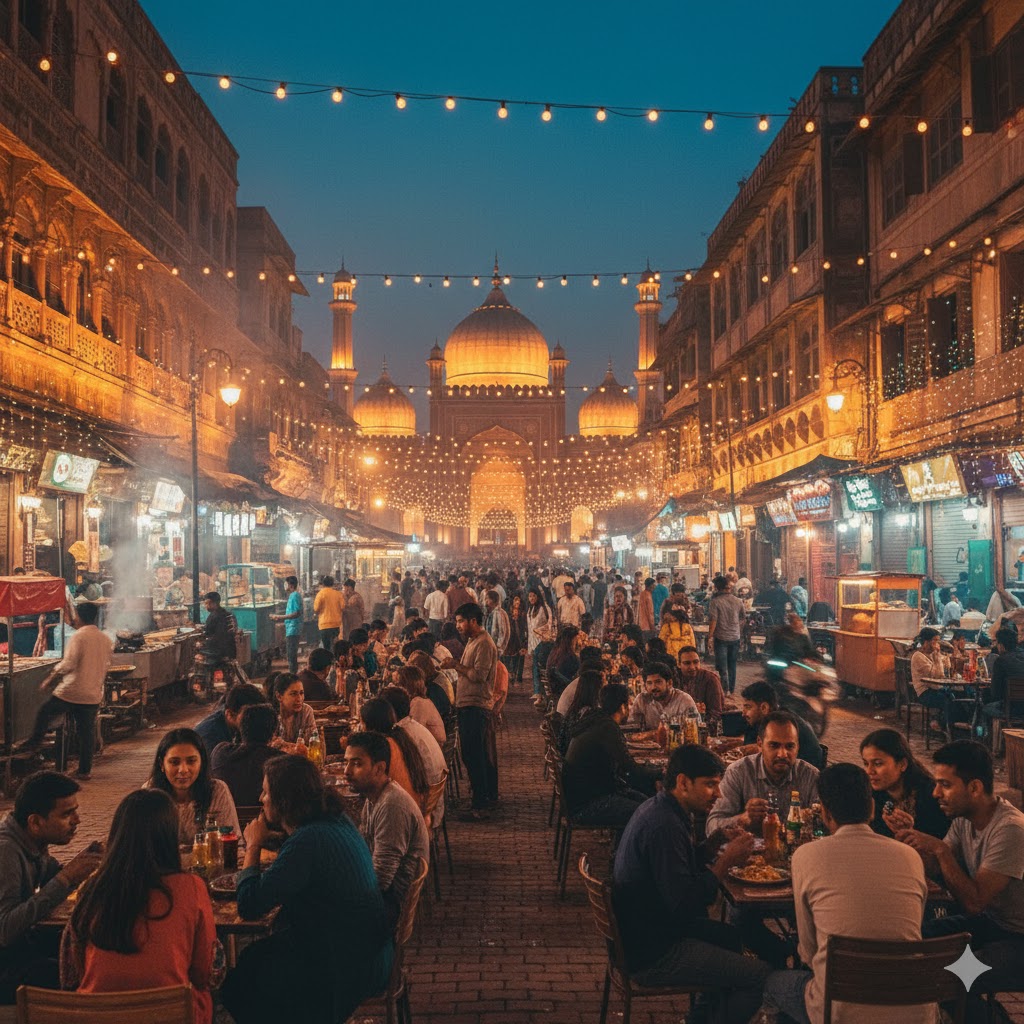
🚶♀️ 6. Suggested Itinerary for 2026
Day 1: Lahore Fort, Badshahi Mosque, and Wazir Khan Mosque
Day 2: Sufi Shrines and Colonial Lahore Trail
Day 3: Old Lahore Walk and Art Trail
Day 4: Shalimar Gardens, Lahore Museum, and evening cultural show
Day 5: Free exploration and food trail (MM Alam Road & Anarkali Bazaar)
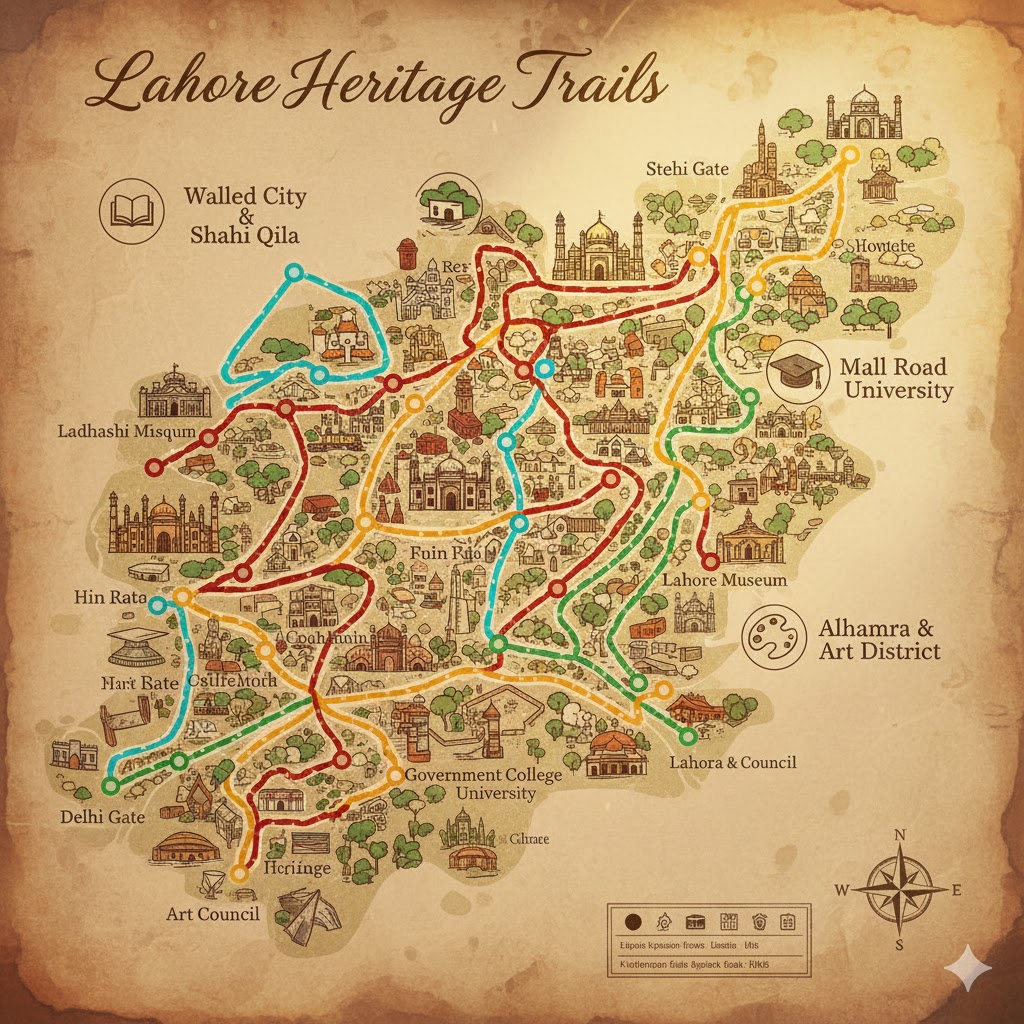
🌍 7. References:
- Read More: Explore more on [Punjab Heritage Circuit 2026] and [Sufi Tourism in Southern Punjab]
- Source: Visit UNESCO World Heritage Centre – Lahore Fort & Shalimar Gardens for historical documentation.
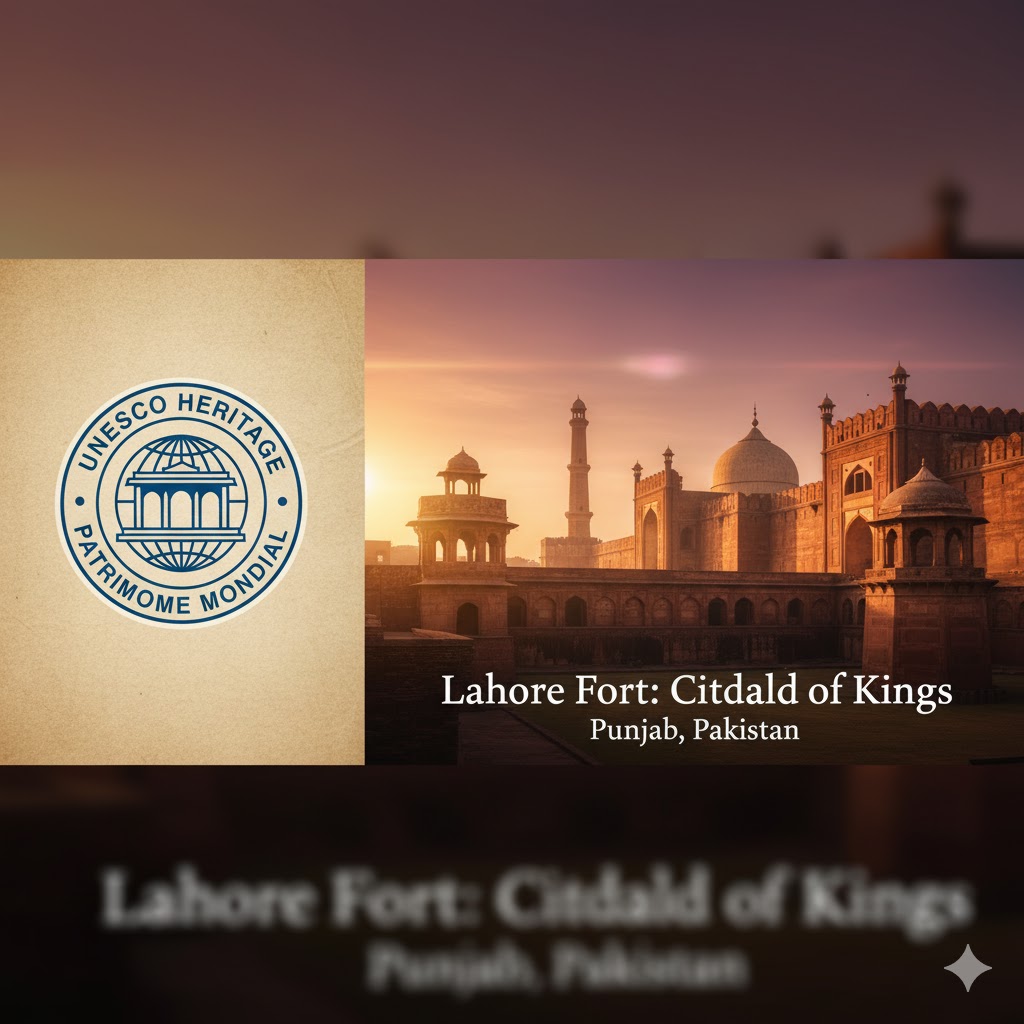
🧭 8. Local Tips & Hidden Gems
- Visit the Dera inside Mochi Gate for handmade musical instruments.
- Try Phajjay ke Paye for authentic breakfast near Badami Bagh.
- Explore Bhati Gate’s hidden calligraphy workshops.
- Ride a Heritage Rickshaw Tour offered by WCLA for immersive storytelling.
💬 FAQs — Explore Lahore’s Cultural Heritage Trails (2026)
Q1. What is the best time to explore Lahore’s cultural heritage trails?
From October to March, when the weather is mild and outdoor exploration is comfortable.
Q2. How can I join guided heritage walks in Lahore?
You can book through the Walled City of Lahore Authority (WCLA) or partner travel agencies offering guided walking and night tours.
Q3. What are some must-try local foods along these trails?
Don’t miss Haleem, Nihari, Golgappay, and Lassi in Gawalmandi Food Street.
Q4. Are these heritage sites safe for solo travelers?
Yes. Most heritage zones have dedicated tourism police and information centers, especially around Lahore Fort and Wazir Khan Mosque.
Q5. Can international tourists visit shrines and mosques?
Yes, with modest attire and respect for local customs. Non-Muslim visitors are welcome in many historic mosques.
